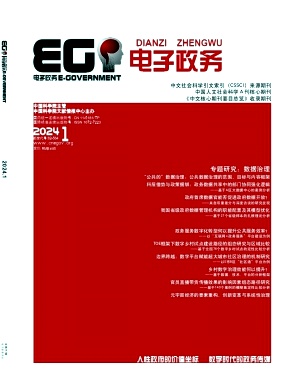The Complexity of E-Business and Markets in Central-Asia, and Impact on Economic Development
引用次数: 0
Abstract
The development of digital economy and e-business platforms, is intertwined with Foreign Direct Investment (FDI), as a key element and driving force behind economic growth and regional economic integration. This paper focuses on the dynamic relationship and impact of e-business infrastructure on FDI's, and how such relationship may determine progress. This research explores challenges to the dynamic region of Central-Asia, and to derive lessons to other regions around the world on how to go about integration, growth and attracting sustainable FDI's because of effective e-business infrastructure. Methodology in this paper consisted of examination of essential elements of e-business applications, and key economic indicators in Central-Asia as published by the World Bank, IMF, OECD and Asian Development Bank, to determine key performance indicators. Analyses shows that the Central-Asian region is suffering from low-competitiveness as a direct result of poor infrastructures, lack of effective administrative systems, oversized-state owned companies, low-digitalization, low per-capita income, low productivity-based competitiveness, and concentration of wealth within a minority of the population. All of which, is limiting the attractiveness of FDI in the region. Yet, this does not deter China and Russia from attempting to dominate FDI in this vital region. E-business infrastructure and digitalization remains a core-driver in the economic development of the region. The legacy of the Soviet Union, coupled with rich energy-based natural resources, and vast population in search of a low-wage employment in nonboring countries, will continue to dominate the region's ability to pave a way in the global economy and prevents generating dominant highly skilled supply of digital-based expertise.中亚地区电子商务与市场的复杂性及其对经济发展的影响
数字经济和电子商务平台的发展与外商直接投资(FDI)密切相关,是推动经济增长和区域经济一体化的关键因素和动力。本文主要研究了电子商务基础设施对外商直接投资的动态关系和影响,以及这种关系如何决定外商直接投资的进展。本研究探讨了中亚这个充满活力的地区所面临的挑战,并为世界其他地区借鉴如何通过有效的电子商务基础设施实现一体化、增长和吸引可持续的外国直接投资。本文采用的方法包括审查电子商务应用的基本要素,以及世界银行、国际货币基金组织、经合发组织和亚洲开发银行公布的中亚主要经济指标,以确定主要业绩指标。分析表明,中亚地区竞争力低下的直接原因是基础设施落后、缺乏有效的行政体系、国有企业规模过大、数字化程度低、人均收入低、以生产率为基础的竞争力低以及财富集中在少数人手中。所有这些都限制了该地区对外国直接投资的吸引力。然而,这并不能阻止中国和俄罗斯试图主导这一重要地区的外国直接投资。电子商务基础设施和数字化仍是本地区经济发展的核心动力。苏联的遗产,加上丰富的以能源为基础的自然资源,以及在不无聊的国家寻找低工资就业的大量人口,将继续主导该地区在全球经济中铺平道路的能力,并阻止产生占主导地位的高技能数字技术供应。
本文章由计算机程序翻译,如有差异,请以英文原文为准。
求助全文
约1分钟内获得全文
求助全文

 求助内容:
求助内容: 应助结果提醒方式:
应助结果提醒方式:


